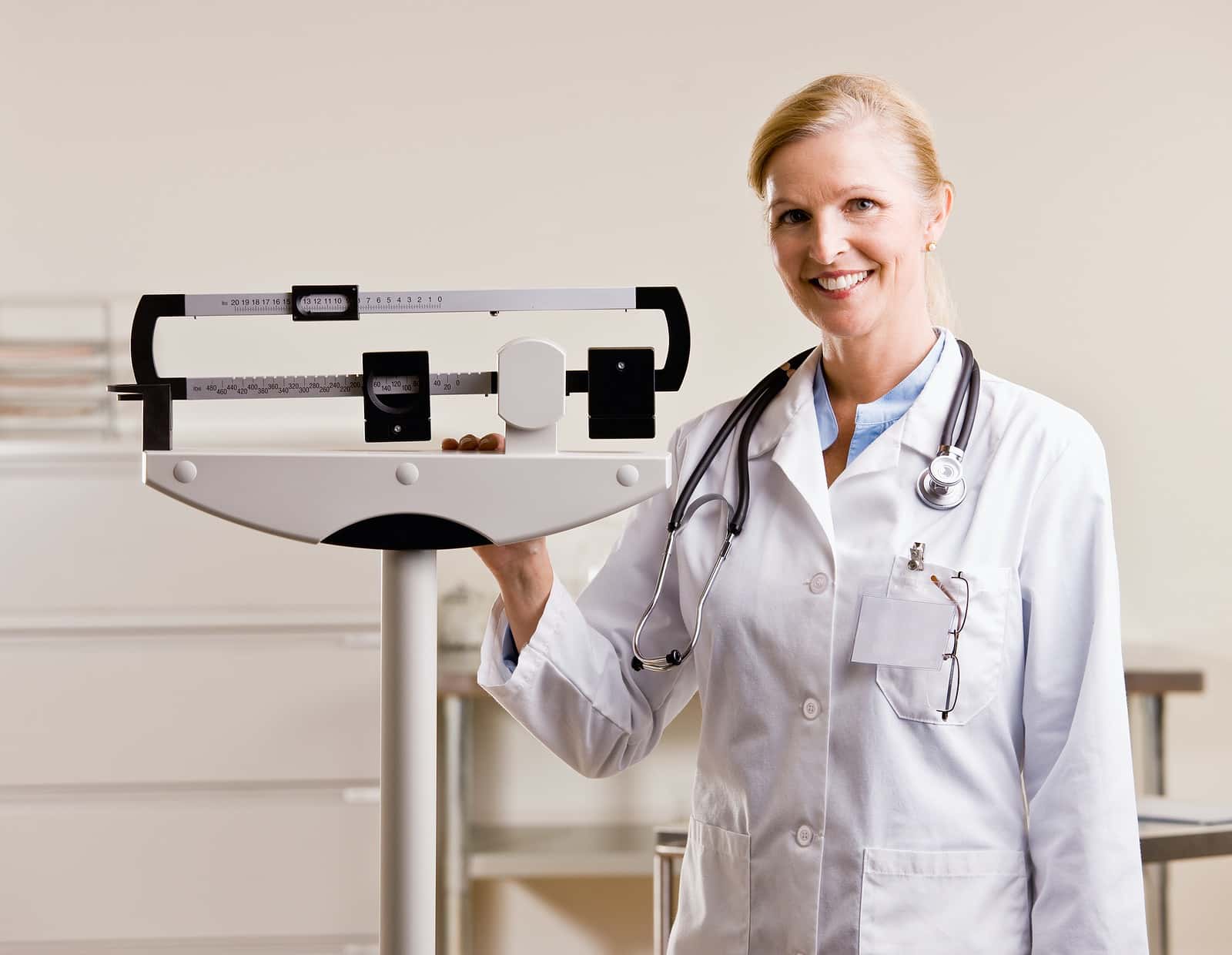
Any time you walk into a doctor’s office, one of the first things they do, even before measuring your blood pressure, is ask you to step on the scale. Perhaps the number is what you expected; sometimes it is a surprise. How accurate are the weights on doctors’ scales?
Checking Doctors’ Scales:
Q. Why do they bother measuring your weight at the doctors’ office when no two scales read the same?
At a large practice my wife attends, they have four little cubicles where vitals are taken. Out of curiosity I weighed myself on each scale.
Only one scale was close to my weight compared to our scale at home. The real shocker for me was that there was as much as 5 pounds difference among the scales at the practice. I pointed this out to a manager but have not followed up.
How can they truly control weight management when on the next visit your weight may measure 5 pounds different than the last time, without actually changing? I can see a 1- or 2-pound difference, but 5 pounds? How concerned should we be with this type of error?
Accuracy Counts:
A. For most people, keeping track of weight at home weekly or daily is more helpful than a sporadic measurement at the doctor’s office. However, there are other situations where the doctors’ scales must be accurate. A five-pound change in weight makes a big difference in assessing heart failure, for instance.
In addition, some people have no access to a scale at home and must rely on their doctor visits to gauge how they are doing with weight management. Most disturbingly, such a big difference among the scales shows inattention to accuracy.
We wonder if the practice manager has made sure that blood pressure monitors are properly calibrated. In that situation, a small change in the measurement could mean the difference between needing a prescription or not.

